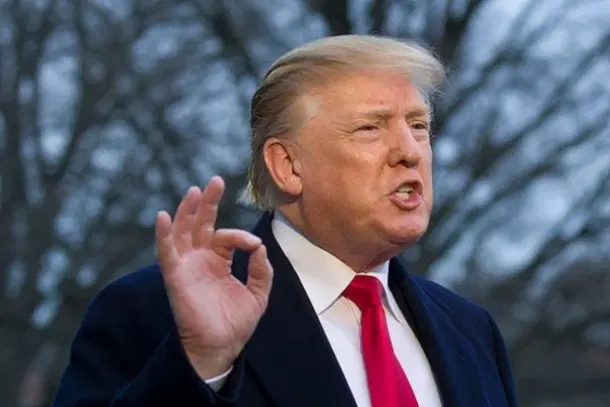News Brief
New US Rule On Work Permits May Hit Thousands Of Indian Migrant Workers
Swarajya Staff
Oct 30, 2025, 08:36 AM | Updated 08:36 AM IST
Save & read from anywhere!
Bookmark stories for easy access on any device or the Swarajya app.


In a major policy reversal, the US Department of Homeland Security (DHS) has announced it will no longer grant automatic extensions for Employment Authorisation Documents (EADs), affecting thousands of migrant workers — with Indian professionals likely to be among the most impacted, NDTV reported.
According to a DHS statement issued on Wednesday (29 October), immigrants applying to renew their EADs from 30 October 2025, will no longer be eligible for automatic extensions.
However, existing EADs extended before this date will remain valid under previous rules.
"Aliens who file to renew their EAD on or after Oct. 30, 2025 (Thursday), will no longer receive an automatic extension of their EAD," the DHS said.
The DHS said the change aims to strengthen “vetting and screening” procedures to enhance public safety and national security — reflecting the Trump administration’s stricter immigration stance.
This marks the end of the Biden-era policy that had allowed immigrants to continue working for up to 540 days beyond their permit’s expiry, provided their renewal applications were timely and eligible under certain categories.
DHS clarified that certain exceptions will continue — particularly those tied to Temporary Protected Status (TPS) employment documents, as specified under federal law or via Federal Register notices.
This involves reviewing migrant workers' background more often which the Trump administration thinks will enable US Citizenship and Immigration Services (USCIS) to "deter fraud and detect aliens with potentially harmful intent."
Labeling it a “common-sense" measure, USCIS Director Joseph Edlow stressed that employment in the US is “a privilege, not a right,” underscoring the administration’s intent to tighten oversight.
The USCIS has urged all EAD holders to apply for renewal at least 180 days before expiry to avoid work disruptions, warning that late applications could lead to temporary loss of employment authorization.
An Employment Authorisation Document (Form I-766) allows non-citizens to work legally in the United States for a limited period.
Permanent residents with Green Cards or individuals on specific non-immigrant visas (like H-1B, L-1B, O, or P) are exempt from needing this document.
Earlier in September, the Trump administration hiked H-1B visa fees to $100,000 (about Rs 88 lakh), arguing that this ensures only “highly skilled” professionals enter the US job market.
The revised fee, however, does not apply to applicants already residing in the US who are shifting from one visa category to another, such as from F-1 (student) to H-1B.
Adding to the trend, Florida Governor Ron DeSantis recently ordered universities to prioritize hiring American citizens over foreign H-1B workers for teaching positions.
Please click here to add Swarajya as your preferred and trusted news source on Google
Also Read: US Exempts Existing Indian H-1B Visa Holders From $100,000 Fee, Easing Fears For Techies





